Our Actions are Our Future. Achieving #ZeroHunger by 2030 in Sri Lanka is possible
World Food Day is celebrated every year around the world on October 16 and is an opportunity to reflect on the progress to achieve the goal of Zero Hunger. The day serves as an opportunity to raise awareness of the challenges that need to be overcome to create a world free from hunger and all forms of malnutrition. This year’s slogan is Our Actions are Our Future. A #ZeroHunger world by 2030 is possible.
The outlook for meeting SDG 2 on Zero Hunger by 2030 at the global level is challenging, however, the prospects in Sri Lanka are much brighter. Poverty has decreased, education is widespread, and universal health services are performing well, meaning that the important building blocks for achieving SDG 2 are in place. What is necessary now is to focus on improving the nutritional status of the population, particularly women and children. Many children do not receive nutrition that they need in terms of quantity or quality for optimal physical and mental growth. Many women of childbearing age are anaemic and too thin, leading to babies being born with low birth weight, making them more susceptible to diseases. These trends have remained stagnant for more than a decade despite Sri Lanka’s impressive economic progress. This situation has, in more recent years, been compounded by fast expanding waistlines, as overweight and obesity rise as consequences of changing lifestyles and urbanization. Action is needed to address all forms of malnutrition, to allow all Sri Lankans to develop their full mental and physical potentials and to reduce the prevalence of non-communicable diseases.
The causes of malnutrition in all its forms are multi-factorial and has several lifelong consequences on individuals, communities, nations and globally. Zero hunger can only be achieved if we all work together to ensure everyone, everywhere, has access to the safe, healthy and nutritious food they need.
Prabath’s story, and the stories of many others suffering from malnutrition must be rewritten. But how? How can we leverage our knowledge and commitment and invest in people, to improve nutrition and livelihoods of individuals, communities and nations?
To achieve Zero Hunger, we must commit to several conditions. Governments must increase focus on national nutrition strategies and promote connections between relevant sectors, such as agriculture, health, education and social protection. To ensure that everyone can access good quality and nutritious food, inclusive development and equitable economic growth must be prioritised. Food producers, including the small-scale farmers and fishers who produce most of the world’s food, must adopt sustainable production methods to increase productivity and income and reduce the impact of agriculture on the environment. Food systems need to be transformed so that all people have access to safe and affordable healthy and nutritious food. Initiatives that raise awareness and promote good nutrition and a diverse, sustainable diet must be scaled up. These conditions can be met only if a multisectoral approach involving everyone – governments, private sector, academia, farmers, fishers, and each individual, play their part.
The celebration of World Food Day 2018 in Colombo was co-hosted by The Food and Agriculture Organization of the United Nations (FAO) and the World Food Programme (WFP) Sri Lanka. The event was attended by His Excellency Maithripala Sirisena, President of Sri Lanka, The Minister of Agriculture, development and UN agencies, private sector partners, community representatives, youth and school children. The event featured an exhibition of traditional, nutritious foods prepared by women from rural community groups, including farmers and food producers, who form part of the Scaling Up Nutrition People’s Forum of Sri Lanka.
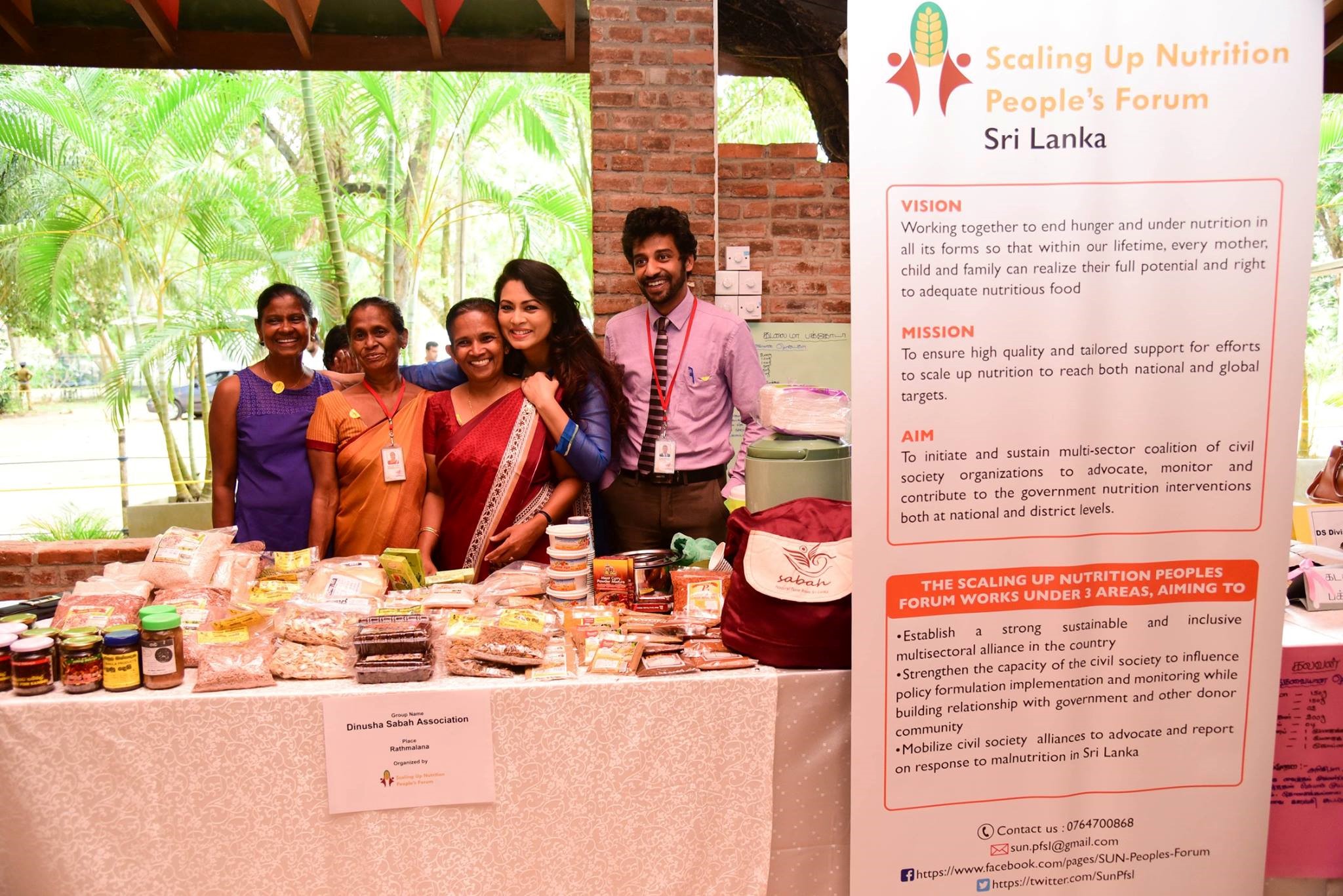
Exhibition stall of the Dinusha Sabah Association, part of the Scaling Up Nutrition People’s Forum, pictured with Pooja Umashankar
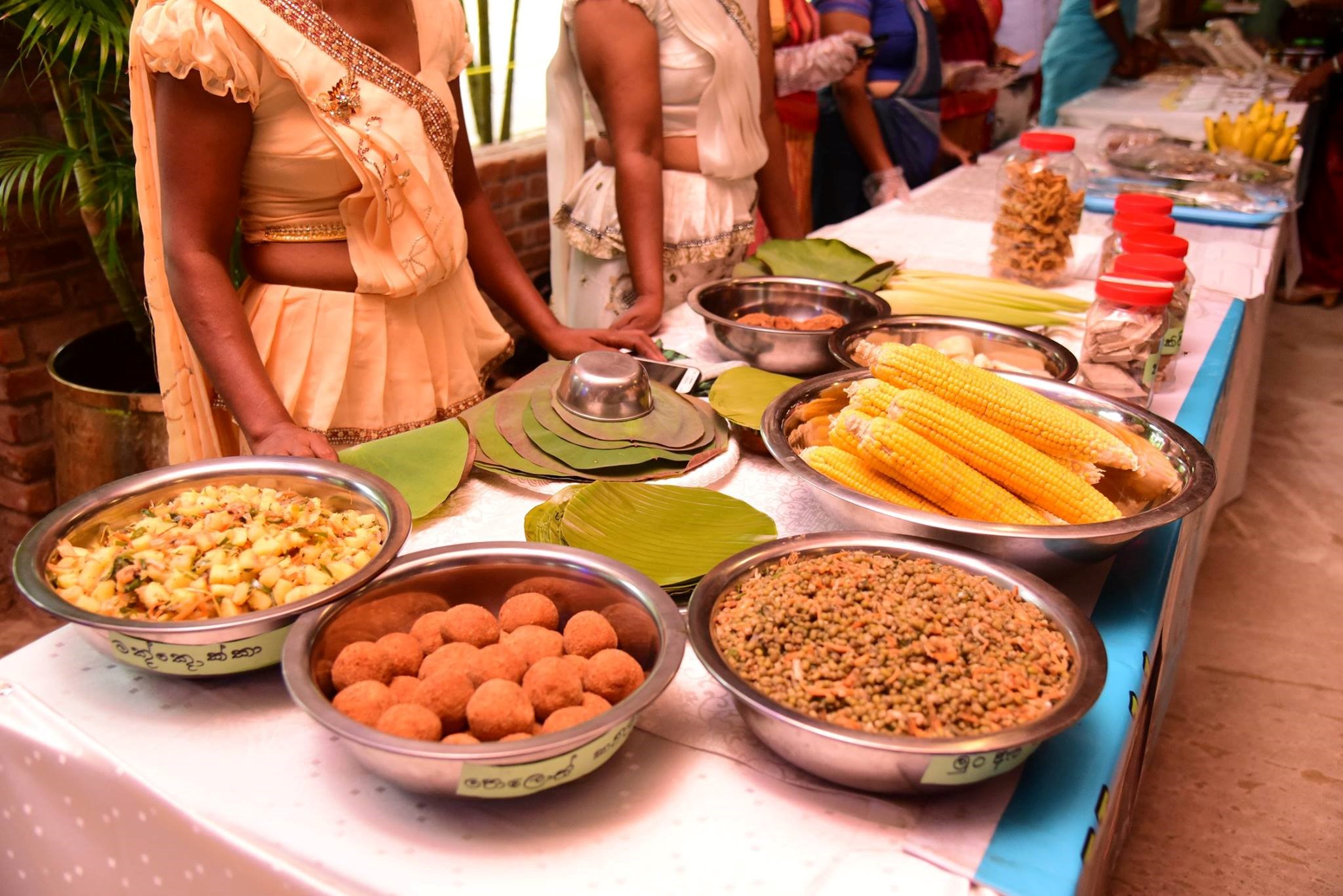
Traditional Sri Lankan foods
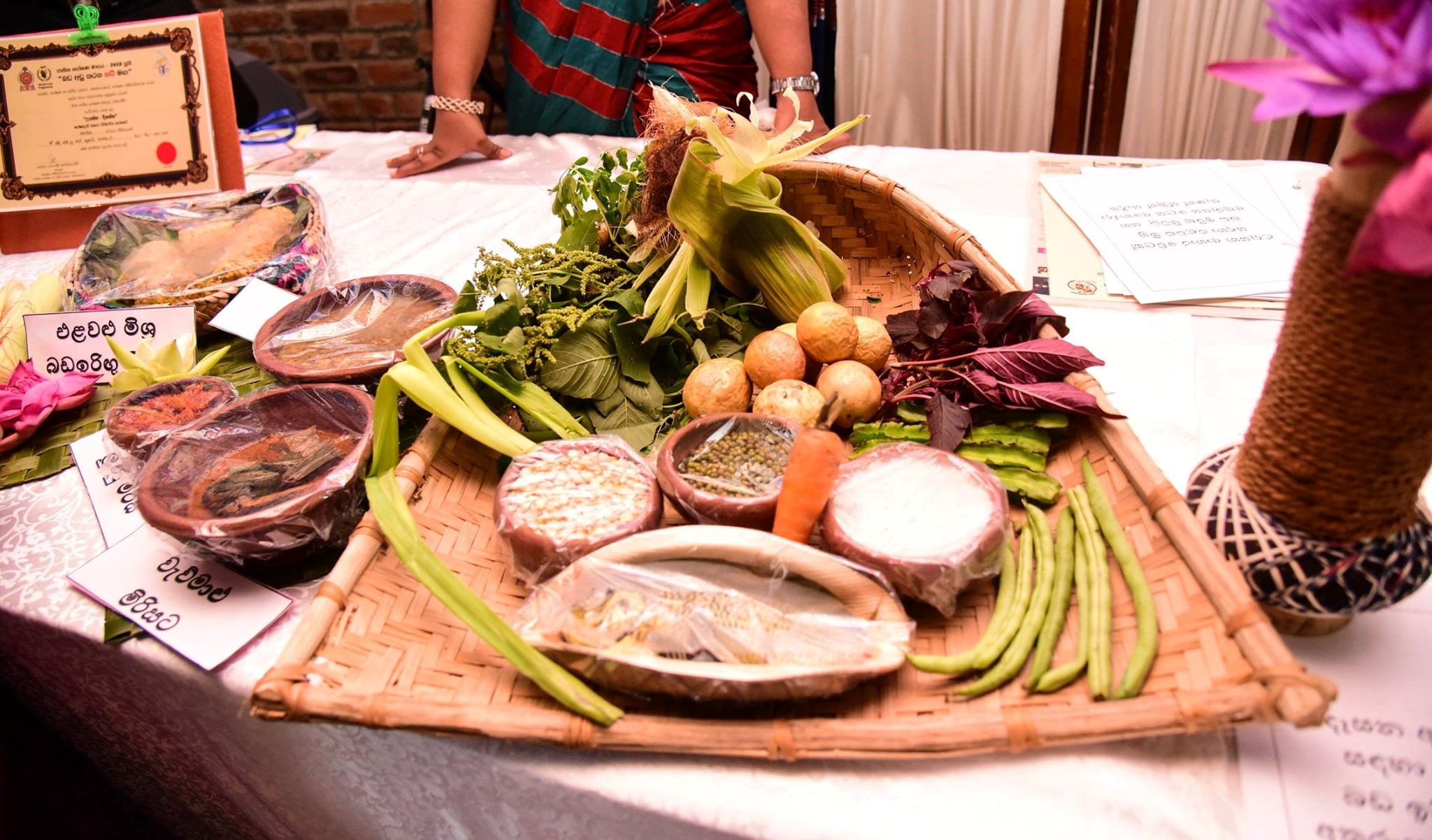 Traditional Sri Lankan foods
Traditional Sri Lankan foods
A pledge wall calling for thoughts and actions on achieving Zero Hunger was facilitated by the popular Sri Lankan actress Pooja Umashankar.
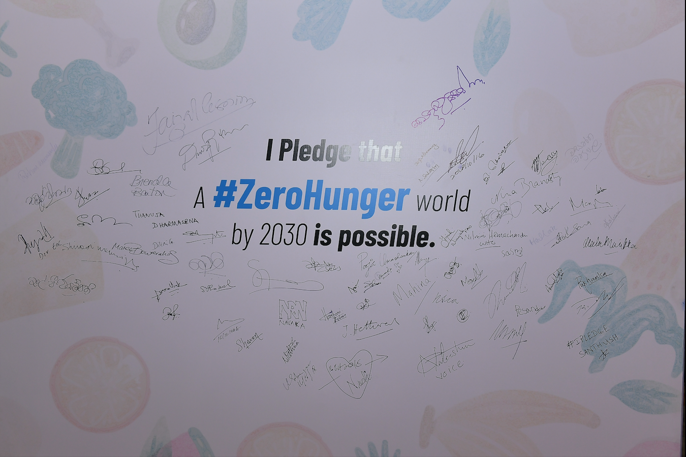
Pledge board
A theatrical performance highlighted the impact of malnutrition on community groups in Sri Lanka and the amination clip above was shown to bring together the elements of nutrition across the lifestyle.
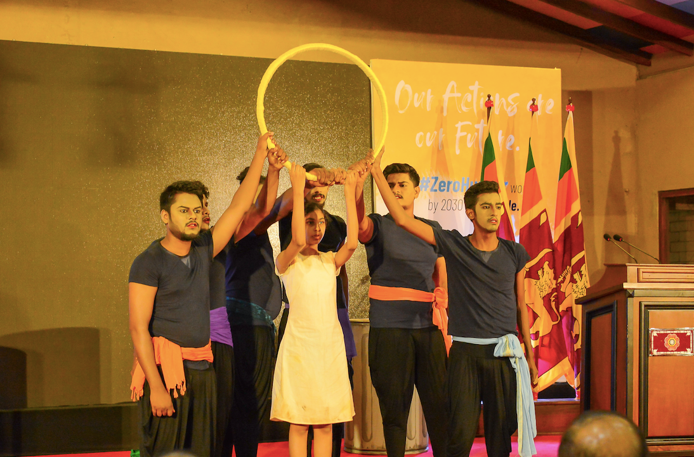
Theatrical performance on ZeroHunger
Speeches focused on the importance of ending all forms of malnutrition in Sri Lanka with commitments from the Government, FAO and WFP.
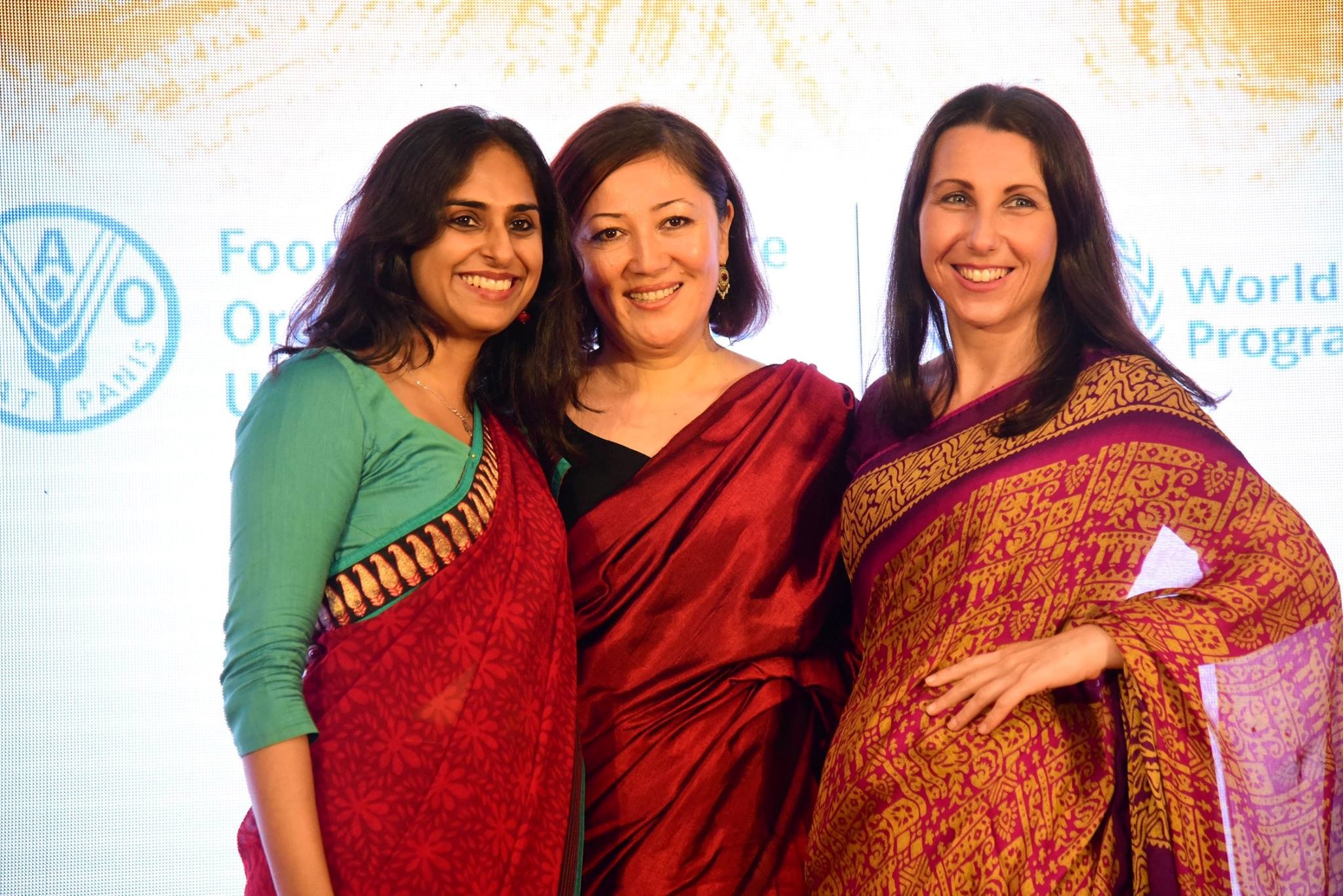
Members of the United Nations Sri Lanka Nutrition team. L-R, Anusara Singhkumarwong, WFP; Safina Abdulloeva, UNICEF; Maree Bouterakos, FAO.
Maree Bouterakos is an Accredited Practicing Dietitian from Melbourne, Victoria. She is currently a consultant for the Food and Agriculture Organization of the United Nations (UN FAO), based in Colombo, Sri Lanka. Maree has seven years’ experience in international development, academic and clinical settings across the Asia-Pacific region. Her interest involves gathering evidence of effective measures in mainstreaming nutrition-sensitive agriculture in formal education settings and across multiple sectors. All views are her own and independent of any employer.


